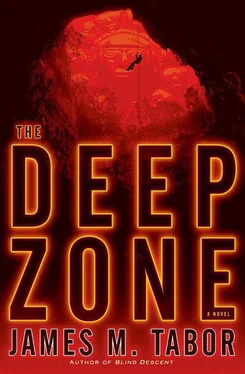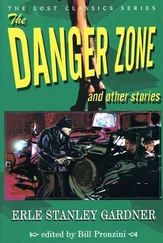Barnard heaved up from behind his desk and motioned for Lathrop to follow him. They went to the big, comfortable leather chairs where Barnard had sat with Hallie. Barnard stopped at his credenza to pour black coffee for both of them. He handed a mug to Lathrop, who spoke:
“Did you brief Rathor on the moonmilk mission?”
“No. I assumed you had,” Barnard said. “But I wondered about it.”
Lathrop studied his mug. “I didn’t. He seemed familiar with it, though.”
“The president must have involved him before the telecon,” Barnard said.
“Probably so. Given his contribution to O’Neil’s campaign, it wouldn’t be politic for the president to keep him in the dark, would it?”
“Fifteen million, wasn’t it?” Barnard mused.
“I heard more. And you know what? The same to Steeves. So I heard.” Lathrop grinned at Barnard over his coffee mug. Harold Steeves had been O’Neil’s Republican opponent in the last presidential election.
“Covering all bases.”
“Wish I could cover bases like that. You ever meet him?” Lathrop kept his expression neutral.
“Rathor? Couple of times, official functions, nods and handshakes. He’s not known for making nice.” Barnard remembered mostly the small man’s big head and scrawny neck.
“You hear stories. People calling him ‘Rat-whore’ and such.” Lathrop chuckled, shook his head. “Washington.”
“Well, he came from Big Pharma. Not the most popular folks,” Barnard said.
Lathrop nodded. “He did bring some of those Big Pharma people into O’Neil’s fold. That was probably more important than the money.”
Barnard thought about it. “ As important, maybe.”
Lathrop laughed. “Point taken.”
“O’Neil’s people spun it pretty well, don’t you think? ‘Another of the president’s open-armed attempts to reach across aisles and build bridges between business and government.’ Or whatever they said.”
“Sure. But we both know O’Neil just wanted to keep a close eye on the bobble-headed little bastard.”
Lathrop leaned back in his chair, took in and let out a deep breath.
“I’m guessing you didn’t come by just to swap tales about the pols, Late.” His friend hated the name David, disliked Dave even more so. Since Phillips Exeter, people had called him Late, which was more than a little ironic because he never was late—was always early, in fact.
“We have a problem, Don.”
“What is it?” Barnard tried to brace himself for yet another piece of bad news. But even so, he was not prepared for what he heard.
“Someone tried to send encrypted data out of BARDA.”
“What?” Barnard shot forward in his seat. “What was it? How do you know that?”
“I can’t answer the second question. As for the first, it was damned good encryption, so we don’t know yet. Analysts are trying to break it down now.”
“Do we know who sent it?”
“Not specifically. We just know it came out of BARDA.”
“So it must have come from a computer here. That should be easy to track.”
“That’s the thing. It didn’t come from a specific BARDA computer. It came directly from the organization’s mainframe. Someone was able to get a torpedo into BARDA’s central unit.”
“You’d better explain that.”
“BARDA and other ultrasecure sites use poison-pill comm configurations. The computers can only send to and receive from computers with similar configurations. Alien data, incoming or outgoing, is destroyed at the portal. That keeps unauthorized sources from receiving BARDA information, and also keeps outside sources from penetrating BARDA’s systems. But it is possible—theoretically—to get around that by coding to wrap the data in a protective capsule. I’m speaking metaphorically here. It’s data hidden inside other data, like explosive inside a torpedo casing. The information can then be received by an outside computer source and will survive while its self-destruct programming is deactivated.”
“So we’re talking about a security breach. Here at BARDA.”
“Yes.”
“You know, we had something like this happen over a year ago.”
“Sure. Hallie Leland’s case. You thought it was all crap. Based on the available facts, I was inclined to agree.”
“Right.”
“So maybe we were wrong. Have you ever considered that?”
Barnard started to retort, but stopped. “You don’t mean to suggest that Hallie was actually selling secrets?”
Lathrop shook his head. “No. I believe, as you do, that somebody set her up, for reasons we don’t yet understand. Set us up, too. And if that’s the case, it’s possible the person is still in place. Anyway, she’s down in that cave.”
“But you think the two incidents are connected.”
“I suspect so, but I don’t know. And I don’t know how to know. But the important thing is to focus on what’s happening now.”
“Can we get NSA on this?” Barnard could not tolerate the thought of some spy in his labs. It was repulsive, like discovering a cockroach in his morning bowl of oatmeal.
“I would like to say yes. But NSA is brutally overtasked. Has been since 9/11. The Joint Chiefs are convinced this is some kind of bioterror attack and have all their critical assets pointed at AfPak.”
“What do you suggest? For here at BARDA, I mean.”
“Sometimes the best detection system is the human gut. Think about people. If something twitches when a name comes up, let me know. We can take it from there.”
“Jesus, Late. I’ve got a hundred and fifty scientists and support people working here.”
“I didn’t say it would be easy. And there’s something else. Something I haven’t shared with higher-ups or anyone else until just now. Could be very important but needs to stay between us until—” Lathrop’s phone vibrated. He pulled it from a vest pocket, looked, touched the screen. “Yes, Mr. Secretary. Yes, sir. I understand, sir. Right away. Yes, sir, I do understand that. I’m moving now. Yes, sir. Really, as in now , sir.”
Lathrop stood up, pocketed the phone, gulped the last of his coffee, and hurried toward the door. “Secretary Mason,” he said, by way of explanation.
“Late.” Something important had been left unsaid, clipped by an order from Hunter Mason, and Barnard didn’t like leaving loose ends. “Just a second.”
But Lathrop was already at the door. He stopped, waved. “Gotta go, Don. The secretary is one man you do not ever want to keep waiting. I’ll brief you on this other thing ASAP, F2F only.” Face to face . Then he was out the door and Barnard heard him trotting down the hall, the brisk clicking of his steps like small bones cracking.
Barnard went to his desk and took out a yellow legal pad. On his computer he brought up his department’s personnel roster. He wrote the first name on the list at the top of the pad:
Abelson, Leonard M. Leo Abelson . Very tall, played basketball for Rutgers, amazing hands. Dedicated scientist. Good man. Barnard moved to the next person on the list.
Twenty minutes later he opened his eyes and realized that he had dozed off while staring at the computer screen. He got up, walked around his desk, dropped to the floor, and fired off twenty push-ups. He stood up and slapped himself in the face, twice, hard, then sat down again. This was going to take a while, he knew, because the only way to find a mole was to dig deep.
HALLIE WENT DOWN FIRST. SHE WAS AN EXPERIENCED ROCK climber and had been on this wall before, though with standard vertical gear, seat harnesses and rappel racks attached to stout, eleven-millimeter static caving rope. This descent would be very different indeed.
Читать дальше












